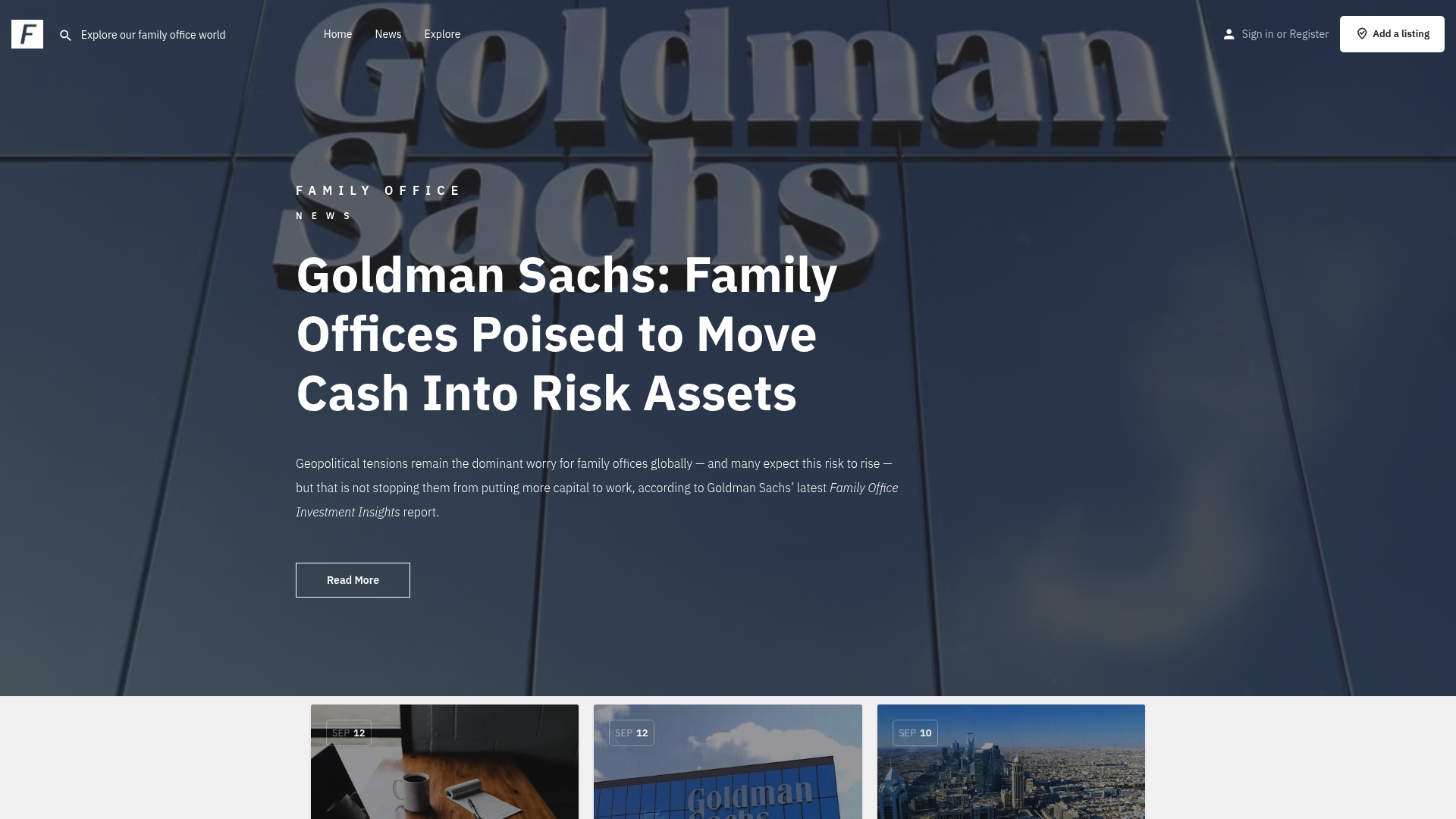Responsible investing is changing how people think about wealth. Nearly 70 percent of family offices now consider social and environmental impact alongside financial goals. Most folks expect impact investing to mean lower returns or complicated strategies. That assumption misses the real story, because families using responsible investing are finding new ways to protect their legacy and shape the world for generations to come.
Table of Contents
- Defining Responsible Investing And Its Importance
- The Role Of Family Offices In Responsible Investing
- Key Concepts And Frameworks For Responsible Investing
- Real-World Examples Of Responsible Investing Success
- Challenges And Future Trends In Responsible Investing
Quick Summary
| Takeaway | Explanation |
|---|---|
| Align investments with personal values | Responsible investing is about ensuring financial decisions reflect individual beliefs and ethical principles. |
| Family offices are key players | Family offices can leverage their flexibility to implement responsible investing, creating meaningful societal impact alongside financial returns. |
| Assess impact quantitatively | Effective responsible investing requires robust frameworks to measure social and environmental outcomes alongside financial performance. |
| Address challenges with holistic approaches | Recognizing and navigating the complexities in responsible investing is vital for family offices facing evolving global expectations and obstacles. |
| Technological innovations enhance investing | Advanced technologies are improving measurement and transparency, transforming responsible investing into a more integrated and impactful strategy. |
Defining Responsible Investing and Its Importance
Responsible investing transcends traditional financial metrics by integrating personal values, social considerations, and ethical principles into investment strategies. Unlike conventional investment approaches that solely focus on financial returns, responsible investing recognizes that money can be a powerful tool for creating meaningful societal and environmental impact.
Understanding Personal Values in Investment Decisions
Responsible investing is fundamentally about alignment. Each investor brings a unique set of values, beliefs, and perspectives that shape their approach to wealth management. For some, this might mean avoiding investments in industries like tobacco or firearms. For others, it could involve actively supporting businesses that demonstrate strong environmental sustainability or promote social equity.
According to World Economic Forum’s Impact Investing research, family offices are particularly well-positioned to drive positive change through intentional investment strategies. This approach allows wealthy families to:
- Reflect their core ethical principles in financial decisions
- Create generational impact beyond immediate financial returns
- Engage younger family members in meaningful wealth management discussions
The Spectrum of Responsible Investing
Responsible investing is not a monolithic concept but a dynamic spectrum with multiple approaches.
 At one end, negative screening removes investments conflicting with specific values. At the other, proactive impact investing seeks out opportunities that generate measurable social and environmental benefits alongside financial performance.
At one end, negative screening removes investments conflicting with specific values. At the other, proactive impact investing seeks out opportunities that generate measurable social and environmental benefits alongside financial performance.
The key is understanding that responsible investing is deeply personal. What constitutes a responsible investment for one family might differ significantly from another’s perspective. This diversity reflects the complex, nuanced nature of personal values and social responsibility.
Below is a table comparing the major approaches found along the responsible investing spectrum, highlighting their focus, strategies, and primary objectives.
| Approach | Primary Focus | Typical Strategies | Objective |
|---|---|---|---|
| Negative Screening | Avoidance of harmful sectors | Excluding industries like tobacco or firearms | Align investments with specific ethics |
| ESG Integration | Environmental, Social, Governance | Evaluating ESG factors alongside financials | Improve long-term return and manage risks |
| Thematic Investing | Specific societal/environmental themes | Investing in themes like clean energy or education | Support targeted impact areas |
| Impact Investing | Proactive measurable impact | Direct investment in projects for positive outcomes | Generate social/environmental returns plus profit |
| Shareholder Advocacy | Corporate behavior change | Influencing corporate policies via engagement | Drive ethical/opportunity improvements |
Ultimately, responsible investing represents a sophisticated approach to wealth management that recognizes money as more than a simple accumulation tool. It’s about creating a legacy that resonates with personal beliefs, contributes to broader societal progress, and provides meaningful financial returns.
The Role of Family Offices in Responsible Investing
Family offices represent a unique and powerful ecosystem for driving responsible investing strategies. As private wealth management advisory firms serving ultra-high-net-worth families, they possess extraordinary flexibility and strategic positioning to implement comprehensive responsible investment approaches that extend far beyond traditional financial frameworks.
Strategic Investment Ecosystem
Unlike institutional investors bound by rigid investment protocols, family offices can craft highly personalized investment strategies that seamlessly integrate financial performance with meaningful social impact. These entities are not constrained by quarterly performance metrics or external shareholder pressures, enabling them to adopt long-term, values-driven investment perspectives.
According to OECD’s research on family offices, these organizations increasingly recognize their potential to drive systemic change through strategic investment decisions. Their unique characteristics allow them to:
- Develop multidimensional investment strategies
- Prioritize intergenerational wealth preservation
- Experiment with innovative investment models
Intergenerational Value Alignment
Modern family offices are increasingly viewed as vehicles for transmitting family values across generations. Younger family members, particularly millennials and Gen Z investors, are pushing for more transparent, socially conscious investment approaches. This generational shift is transforming responsible investing from a niche strategy to a mainstream consideration.
Responsible investing for family offices is not just about financial returns, but about creating a meaningful legacy that reflects the family’s collective values, ethical standards, and vision for societal progress. By carefully curating investment portfolios that balance financial performance with positive social and environmental impact, family offices can serve as catalysts for meaningful change while protecting and growing family wealth.

Key Concepts and Frameworks for Responsible Investing
Responsible investing requires sophisticated frameworks that enable investors to systematically evaluate and integrate complex value-driven considerations into their investment strategies. These frameworks provide structured approaches for understanding how financial decisions can generate meaningful social and environmental impact.
Impact Assessment Methodologies
Comprehensive responsible investing demands robust methodological approaches that go beyond traditional financial metrics. Investors need sophisticated tools to measure and understand the broader implications of their investment choices.
According to the Global Impact Investing Network, effective impact assessment involves examining four critical dimensions:
- What: Understanding specific outcomes and their significance
- Who: Identifying impact recipients and evaluating their circumstances
- How Much: Quantifying the extent and duration of potential changes
- Contribution: Assessing the investor’s direct role in achieving positive outcomes
Strategic Evaluation Frameworks
Responsible investing frameworks are not one-size-fits-all solutions. Successful strategies require customized approaches that reflect an investor’s unique values, risk tolerance, and impact objectives. These frameworks typically integrate multiple evaluation criteria, including:
- Environmental sustainability indicators
- Social responsibility metrics
- Governance and ethical performance standards
- Long-term societal and ecological impact potential
By developing nuanced, multidimensional assessment tools, investors can move beyond simplistic screening processes. The goal is creating investment strategies that generate financial returns while actively contributing to positive societal transformation. This approach transforms responsible investing from a peripheral consideration to a core strategic imperative for forward-thinking family offices and individual investors.
Real-World Examples of Responsible Investing Success
Responsible investing is not just a theoretical concept but a practical approach with measurable real-world impact. Family offices and forward-thinking investors are demonstrating that financial returns and positive societal outcomes can coexist effectively through strategic, purposeful investment approaches.
Transformative Investment Strategies
Successful responsible investing goes beyond simple screening processes. It involves deep, strategic engagement with businesses and sectors that have genuine potential for meaningful social and environmental transformation. These investments are characterized by their ability to generate both financial returns and substantial positive impact.
According to research from the National Bureau of Economic Research, family offices have pioneered innovative investment strategies that deliver remarkable outcomes across multiple domains:
- Affordable housing development projects
- Sustainable education infrastructure initiatives
- Renewable energy technology investments
- Social entrepreneurship support programs
Impact Measurement and Verification
Credible responsible investing requires rigorous impact measurement. Successful investors do not merely claim positive impact but systematically track and verify their investments’ social and environmental contributions. This approach involves establishing clear metrics, conducting regular assessments, and maintaining transparency about investment outcomes.
Investors are increasingly utilizing sophisticated frameworks that quantify impact across multiple dimensions. These frameworks help evaluate not just financial performance but the broader societal value created through strategic investment choices. By demonstrating tangible, measurable outcomes, responsible investing transitions from a peripheral strategy to a core approach for generating comprehensive value.
Challenges and Future Trends in Responsible Investing
Responsible investing continues to evolve, presenting both significant opportunities and complex challenges for family offices and forward-thinking investors. As the landscape becomes increasingly sophisticated, stakeholders must navigate a nuanced terrain of emerging trends, technological disruptions, and shifting global expectations.
Institutional and Structural Challenges
The responsible investing ecosystem faces multifaceted challenges that extend beyond simple investment strategies. Family offices are encountering increasingly complex decision-making environments that require adaptive, holistic approaches to wealth management and impact generation.
According to the Wharton Family Office Survey, significant obstacles emerge in strategic planning and organizational transition, including:
Here is a table outlining key challenges family offices face in responsible investing, alongside examples and brief descriptions from the article.
| Challenge | Example from Article | Description |
|---|---|---|
| Limited succession planning | Lack of formal mechanisms | Difficulty preparing for intergenerational wealth transfer |
| Integrating next-generation perspectives | Generational transition issues | Bringing younger family members’ values into strategy |
| Awareness of long-term strategies | Insufficient strategic awareness | Not enough planning for future organizational direction |
| Complex regulatory landscape | Compliance complexity | Navigating evolving regulations and reporting requirements |
| Adapting to decision-making complexity | Multifaceted decision environments | Managing new risks and aligning multiple stakeholder interests |
- Limited formal succession planning mechanisms
- Insufficient awareness about long-term organizational strategies
- Challenges in integrating next-generation perspectives
- Complex regulatory and compliance landscapes
Emerging Technological and Strategic Innovations
Technological advancements are fundamentally reshaping responsible investing approaches. Advanced data analytics, artificial intelligence, and blockchain technologies are creating unprecedented opportunities for more transparent, measurable, and impactful investment strategies.
Investors are increasingly leveraging sophisticated tools that enable:
- Real-time impact measurement
- Enhanced transparency in investment tracking
- More granular assessment of social and environmental outcomes
- Dynamic risk management strategies
The future of responsible investing will be characterized by its ability to seamlessly integrate financial performance with meaningful societal impact, transforming from a niche strategy to a fundamental approach in wealth management.
Transform Your Responsible Investing Journey with Future Family Office
Are you struggling to align your family office investments with your personal values and vision for lasting impact? The article explored how challenging it can be to find robust frameworks and trusted connections while building strategies that reflect ethical principles, intergenerational values, and measurable societal impact. Many family offices feel isolated as they navigate complex frameworks or search for partners capable of delivering on both financial goals and social responsibility.

Now is the time to join a global community that shares your passion for responsible wealth management. At Future Family Office, you will find a comprehensive directory of family offices, expert insights on the latest impact investing trends, and exclusive networking opportunities. Create your profile, connect with service providers, and access industry-leading resources designed to help your family office achieve authentic responsible investing outcomes. The next step in your responsible investing journey starts here.
Frequently Asked Questions
What is responsible investing?
Responsible investing integrates personal values, social considerations, and ethical principles into investment strategies, focusing on both financial returns and societal or environmental impact.
How do family offices contribute to responsible investing?
Family offices can create personalized investment strategies that align with their family’s values and goals, allowing for long-term perspectives on wealth management and social responsibility.
What frameworks are used for responsible investing?
Investment frameworks for responsible investing typically involve assessing environmental sustainability, social responsibility, governance standards, and the long-term potential for societal impact.
What challenges do family offices face in responsible investing?
Family offices encounter challenges such as complex decision-making environments, lack of formal succession planning, and integrating next-generation perspectives amidst changing regulatory landscapes.
Recommended
- 5 Family Offices Making Impact Investments – Future Family Office
- When Cash Is Not King: The New Favorite Investment Options For Family Offices – Future Family Office
- January 2020 Family Office Data Report – Future Family Office
- What Do Banks Believe Family Offices Should Focus On? – Future Family Office




